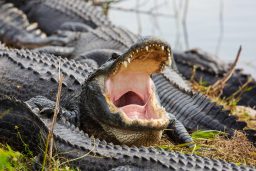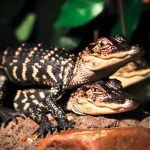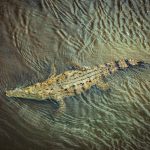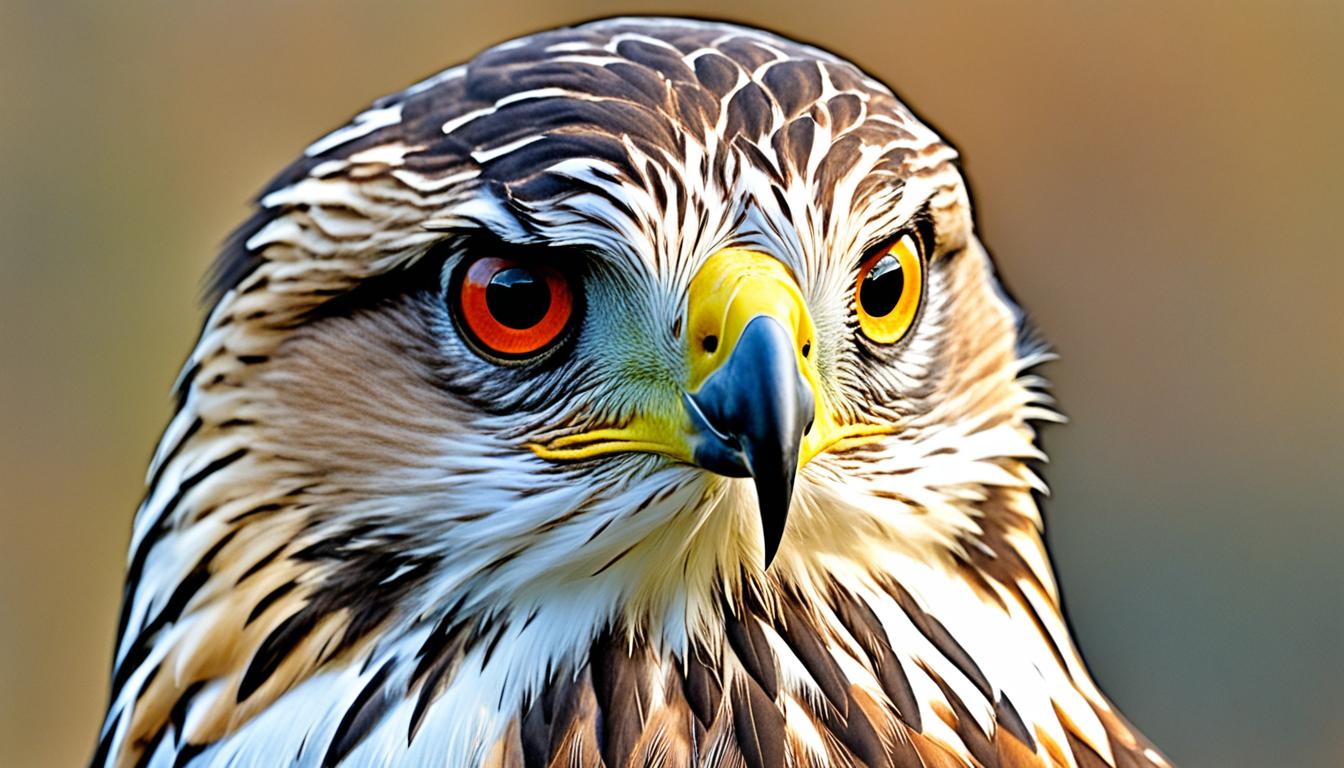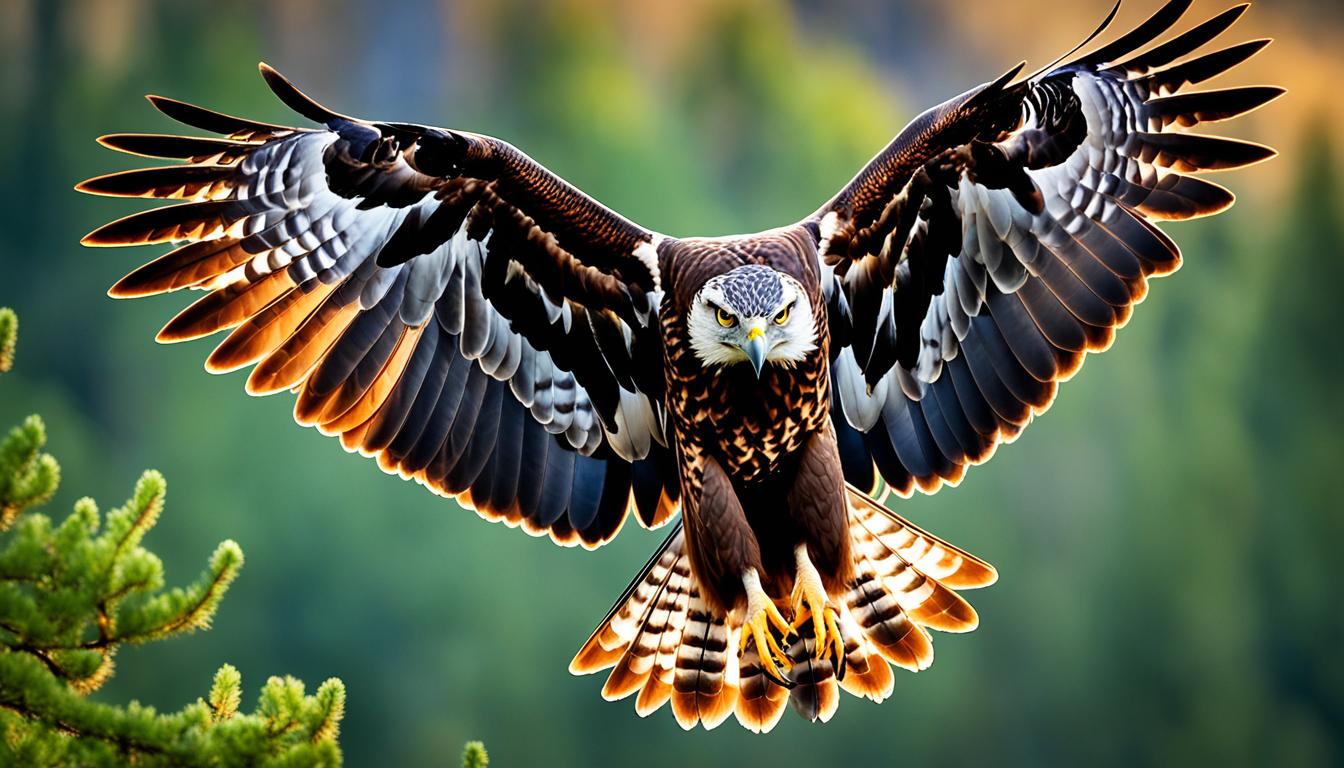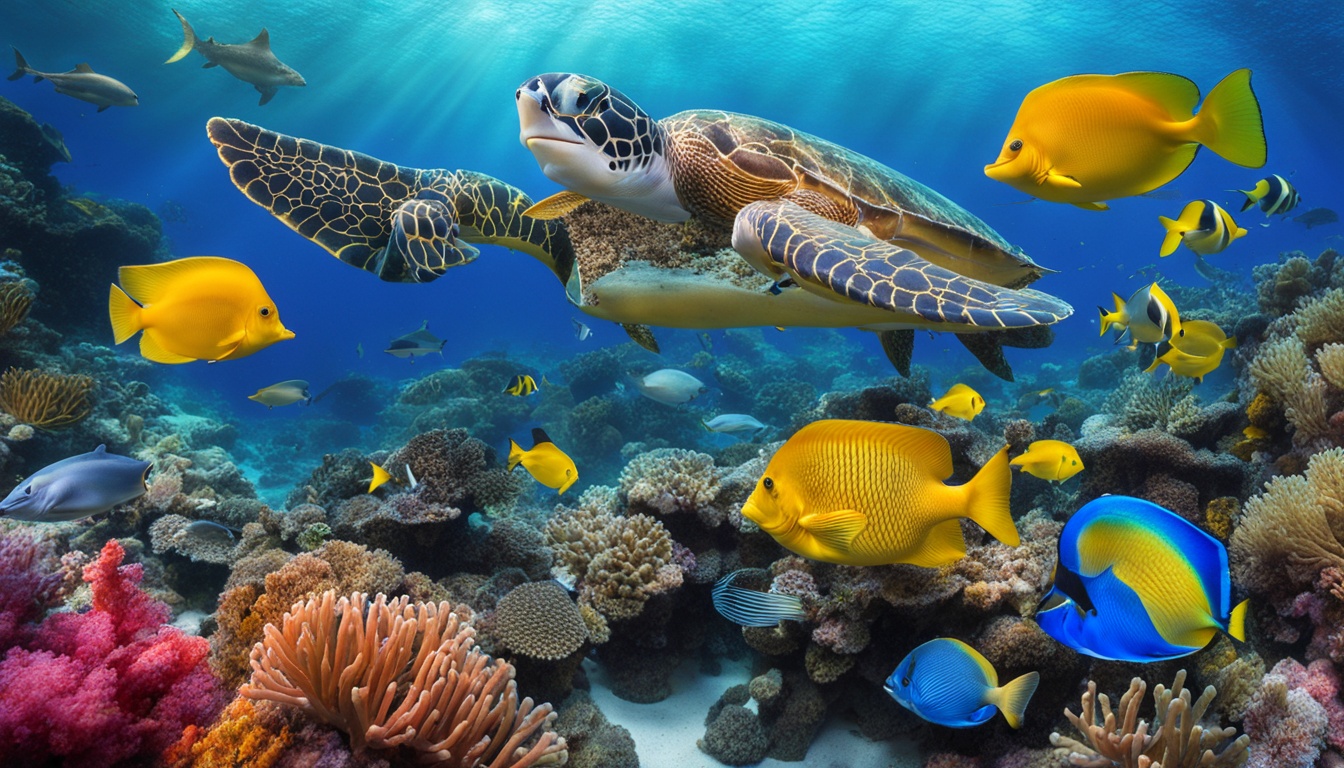Fortunately for crocodiles – they can and will eat absolutely anything they can grab. With immensely powerful jaws and unrivalled stealth – anything is dinner.
What Does A Crocodile Eat In The Wild?
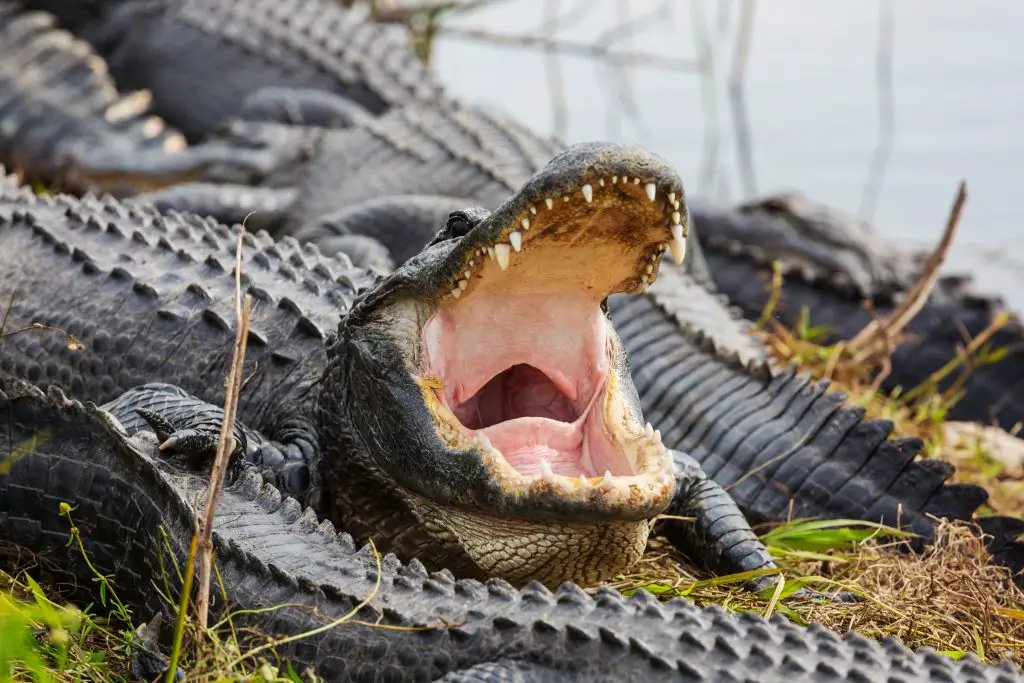
Crocodiles are well and truly carnivores: angry aquatic-dwelling ambush predators. Ideally, their prey needs to be in the water or at the water’s edge – but up a tree or on dry land will do too.
Nowhere and nothing is safe. Even the power or flight can’t help you – as birds also get eaten by crocodiles.
And worse still – even being a crocodile doesn’t mean you are safe either. A crocodile’s life is all about size.
Hatchling crocodiles are limited to eating insects and small fish in their early months while they are still small themselves. Hanging around near the nest site; part in water, part in the undergrowth, supports this diet choice – as the swampy edges of rivers and creeks are riddled with insects and fry.
As they grow, they move on to larger fish, crabs, frogs, and turtles as well as mammals and birds. Crocodiles have wider snouts than some of their specialist fish-eating relatives – and their snout gets wider as they age allowing them to catch larger and more varied prey items.
Moving on to larger prey comes with other problems, such as the fact that crocodiles can’t chew or tear flesh – so food caught that is bigger than a single gulp requires some physical activity.
Larger crocodiles have the strength to catch even the largest animals if the opportunity arises. American Crocodile (Crocodylus acutus) adults will catch and eat full-size cattle at the water’s edge without hesitation.
Even larger crocodiles, like the Saltwater Crocodile (Crocodylus porosus) and Nile Crocodile (Crocodylus niloticus), will catch and eat tigers, sharks, giraffes, and even elephants.
Do Crocodiles Eat Plants?
Yes, Although crocodiles are massive apex predators and live on meat from any animal they can catch – they also eat plant material.
They don’t feast on grasses and leaves – but they have been known to actively choose to eat fruits. One study reported that they found fruit seeds in more than 50% of crocodile species being researched. It wasn’t just seeded either, there were traces of legumes and grains too.
There is no real explanation for this as such – but their stomachs are some of the most acidic in the Animal Kingdom (able to digest bones and hooves) – so perhaps these offer some kind of therapeutic benefit somehow?
Would A Crocodile Eat A Human?
Absolutely they would – and they do unfortunately eat humans. They don’t go out of their way to catch and kill humans – but if they are hungry, big enough and a human enters the water, they might not be too fussy. Often the activity of humans is enough to make them wary and stay away
If they are big enough and determined enough – then the results could be fatal.
Most attacks are territorial (where the crocodile is protecting their nest or their young) but not always. Young, small, solitary or already full crocodiles wouldn’t even attempt it – and crocodiles can go for weeks without feeding. However, the number of attacks worldwide is worth noting.
Crocodiles are far more aggressive to humans than alligators are – and the larger species of Nile and Saltwater crocodiles are the most aggressive. Not surprisingly, these two are responsible for the most human attacks. About 1000 people a year are killed by crocodilians with these two species as the main perpetrators, with more than another thousand non-fatal attacks annually.
Does the presence of a tongue affect what crocodiles eat?
Crocodiles’ tongue anatomy explained: The presence of a tongue in crocodiles does affect their eating habits. Unlike other reptiles, crocodiles have a tongue that is firmly rooted to the bottom of their mouths. This restricts its movement, making it less involved in capturing and manipulating prey. Instead, crocodiles rely on their powerful jaws and sharp teeth to catch and tear apart their food. So, while the presence of a tongue does play a role in the feeding process, it is not as significant as in other animals.
Can Crocodiles Lose Their Teeth?
Yes crocodiles can loose their teeth but they have a unique dental plan. They can grow new teeth all their lives. so if they lose a tooth or two – it doesn’t matter.
All of a crocodile’s teeth are the same – they don’t have canines and molars – just their usual sharp peg-like teeth. They have about 80 of them at a time and they are all conical and spaced out. These teeth are perfectly designed to hold on to anything for as long as it takes. They aren’t sharp-sided or curved as this could allow the prey animal to escape – they sink in straight and almost nail the prey in place. Perfect for drowning them quickly – the crocodiles preferred hunting technique.
These teeth are also able to replace themselves if damaged – which they often are. The crocodile’s mouth slams shut at such a speed that individual teeth are often lost. Amazingly though, this triggers the new, waiting tooth to spring into life. Crocodiles can actually replace their teeth up to an estimated 50 times in their lifetimes – which can easily be up to 75 years of age.

